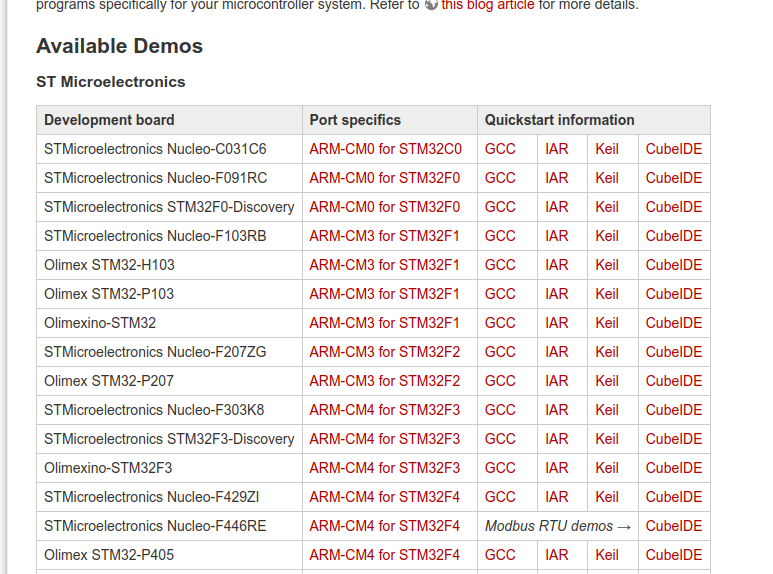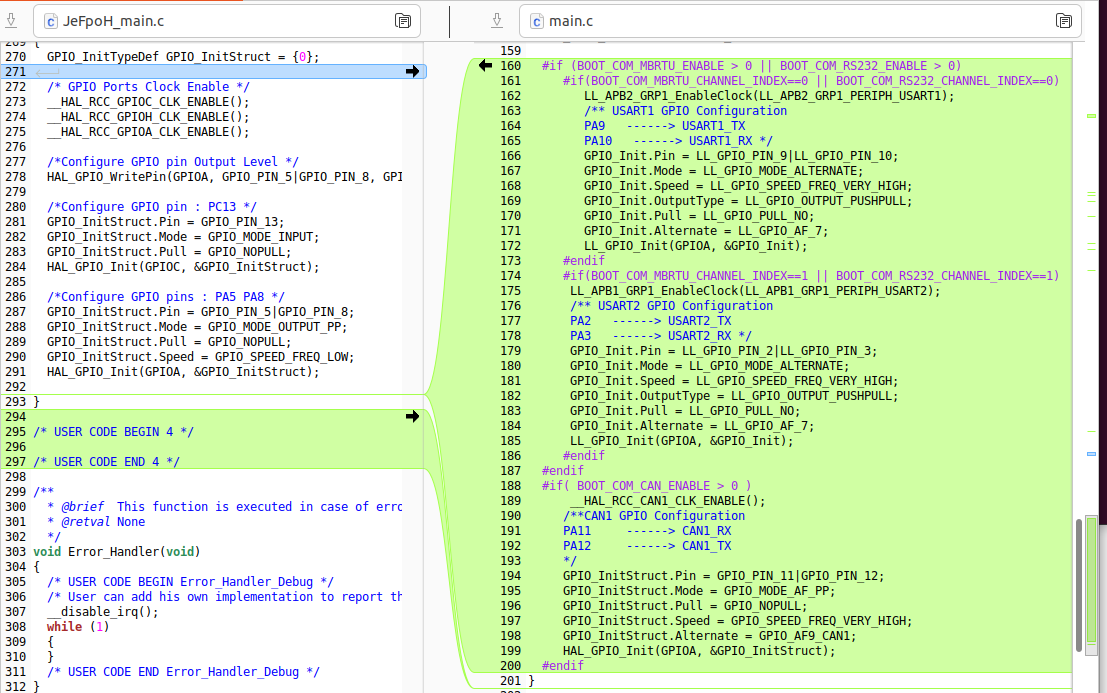Before Start
As we notice in last post only Modbus is available in the demo.

To activate RS232 and CAN bus as flash sources in OpenBLT, you need to enable the necessary resources such as GPIOs, clock sources, and their respective drivers. The following steps document the process of performing this task using the OpenBLT demo as a base and modifying it to enable the mentioned resources.
The custom openBLT project is stored in a Github repository: customNucleoF4-OpenBLT.
Enabling USARTx and CAN GPIOs
MBRTU and RS232 use the USART1 and USART2 resources to work. To enable the use of RS232 and CAN ports, the following changes were made to the code:
First of all the Macros to manage RS232 and CAN were added to blt_conf.h file.
- RS232 macros.

- CAN macros.

These lines were taken from another project that has support for both CAN and RS232.
Analyzing the code I noticed that the parameters for USART1 & USART2 were initialized both in the main.c file and again in the rs232.c or mbrtu.c files. only the gpios and clock need to be enabled.
The main.c file has been updated to improve this implementation. Since a function to enable GPIOs was previously declared, the code to enable port communication has been moved there. This utilizes macros from blt_conf.h to optimize resources using conditionals to enable code sections.


An important step to work with can is add hal driver for can on Boot/Drivers/STM32F4xx_HAL_Driver/Inc/stm32f4xx_hal_can.h and Boot/Drivers/STM32F4xx_HAL_Driver/Src/stm32f4xx_hal_can.c it can be obtained from a generic STMCubeIDE project.
Finally the system works. See next post with results.